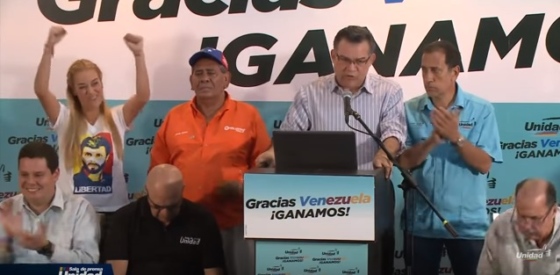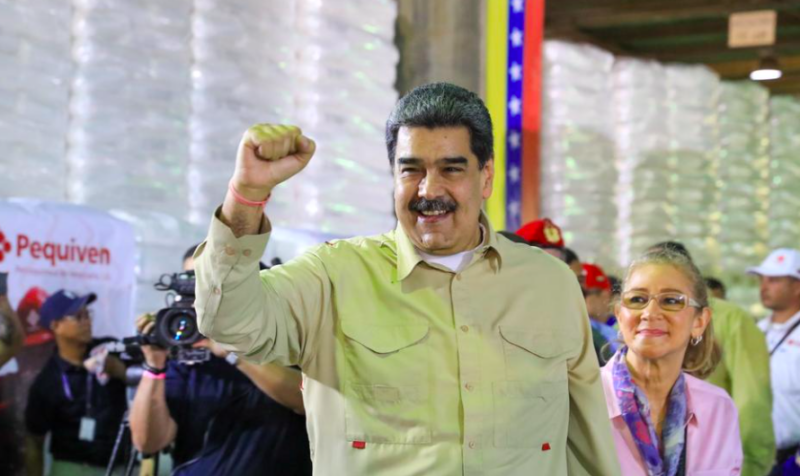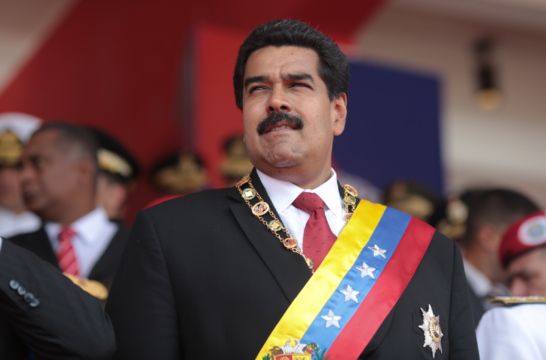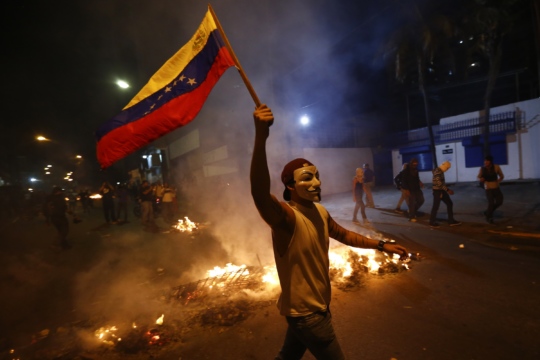
What Does the Future Hold for Venezuela?
What do the election results mean for President Nicolás Maduro and his grip on the presidency?
A Daily Publication of The Dialogue
The new representative of the Venezuelan opposition in the United States urged U.S. President Joe Biden to ease sanctions on Nicolás Maduro’s government, the Associated Press reported April 4. Fernando Blasi said the South American country risked becoming another Cuba amid increasing authoritarianism and economic turmoil. Blasi’s position represents a shift from the opposition’s approach over the last four years that has sought U.S. help to increase pressure on Maduro in an attempt to force him out of office. What explains the change in the opposition’s approach to Maduro, and what is the opposition now seeking to achieve? How likely is the United States to relax measures against Venezuela? What would looser sanctions mean for Maduro, the opposition and Venezuela?
Mark A. Wells, U.S. State Department deputy assistant secretary: “The policy of the United States has been to calibrate sanctions to be responsive to both humanitarian need and positive democratic outcomes, and to closely coordinate these decisions with the opposition-led Unitary Platform. We have long made clear that we would review our sanctions policies in response to constructive steps by the Maduro regime, and if the Venezuelan parties make meaningful progress in the Venezuelan-led negotiations in Mexico. We have, on specific occasions, provided targeted, time-limited sanctions relief for humanitarian reasons and in support of a return to democracy in Venezuela. We remain steadfast in our commitment to the Venezuelan people, which includes support for their democratic aspirations, including free and fair elections next year, and assistance to address Venezuela’s humanitarian crisis with a broad coalition of partners. We will continue to hold accountable actors engaging in corruption, violating U.S. laws or abusing human rights in Venezuela.”
Vanessa Neumann, CEO of Asymmetrica and former Juan Guaidó-appointed Venezuelan ambassador to the United Kingdom: “Fernando Blasi is not the envoy to the United States for the Venezuelan opposition: he is not recognized as such either by the U.S. government or indeed by the Venezuelan opposition itself. He represents a small faction of the opposition, which, much to its own disgrace and the disappointment of 32 million Venezuelans, has always had groups and individuals willing to abuse their positions and pact with the Devil (or any of his proxies) in exchange for a kickback, while telling the U.S. government and Venezuelans it would be in the best interest of democracy. Consequently, no one believes the opposition’s fight anymore, correctly seeing it as: ‘Quítate tú para ponerme yo,’ or ‘Step aside so I can take your place,’ in English. There’s the added reality that sanctions make a good rallying cry for Chavistas, who do control access to projects. I am unequivocally on record that any financial inflows need to be on projects that improve the lives of Venezuelans: jobs, health and infrastructure. If the opposition fight is Pyrrhic, the only thing left to do is to start exercising those democratic muscles again, by organizing for elections. It gives the opposition a chance to raise funds, which have been slashed by the Biden administration. From the U.S. perspective, the hope is that conditioning funds on electoral processes will get the parties to organize, do the groundwork with the communities and pry open the democratic spaces with a view to 2030. No one believes the opposition can win and seize power in 2024, but there’s always hope for a black swan incident, I suppose.”
Luis Gilberto Murillo, ambassador of Colombia to the United States: “Colombia’s efforts to establish open communication and constructive relations with Venezuela and its various actors, including the opposition, government and the international community, are driven by the crucial goal of promoting positive dynamics towards a politically stable region. The main objective of the International Conference of Ministers of Foreign Affairs on the situation in Venezuela is to produce a shared assessment of the current situation and to identify possible entry points, incentives and concessions to overcome the current stalemate in the negotiations and facilitate a rapid return to the dialogue mechanism between the opposition’s Unitary Platform of Venezuela and the government. The Colombian government recognizes the importance of the negotiation mechanism established between the Venezuelan government and the Unitary Platform of Venezuela, which is being hosted by Mexico and has the facilitation of the government of the Kingdom of Norway and the accompaniment of the international community. A renewed approach to Venezuela’s situation is much needed. Thus, the Venezuelan government and the Unitary Platform of Venezuela need the international community’s support in reaching agreements and delivering proposals under a revised scheme of reciprocal gestures that might lead to a more democratic regime with free and fair elections, in exchange for the easing of current U.S. sanctions. Sanctions must be reviewed to enhance progress in the negotiation, followed by feasible and practical solutions to the Venezuelan political and institutional crisis, such as the release of prisoners and political guarantees for a more democratic Venezuela.”
 The Latin America Advisor features Q&A from leaders in politics, economics, and finance every business day. It is available to members of the Dialogue’s Corporate Program and others by subscription.
The Latin America Advisor features Q&A from leaders in politics, economics, and finance every business day. It is available to members of the Dialogue’s Corporate Program and others by subscription.
What do the election results mean for President Nicolás Maduro and his grip on the presidency?
How the State Wrecked the Oil Sector—and How to Save It
An economic and humanitarian crisis, precipitated by the Maduro regime, has brought Venezuela to the brink of collapse.
 The new representative of the Venezuelan opposition in the United States urged U.S. President Joe Biden to ease sanctions on Nicolás Maduro’s government (pictured). // File Photo:
@NicolasMaduro via Twitter.
The new representative of the Venezuelan opposition in the United States urged U.S. President Joe Biden to ease sanctions on Nicolás Maduro’s government (pictured). // File Photo:
@NicolasMaduro via Twitter.

